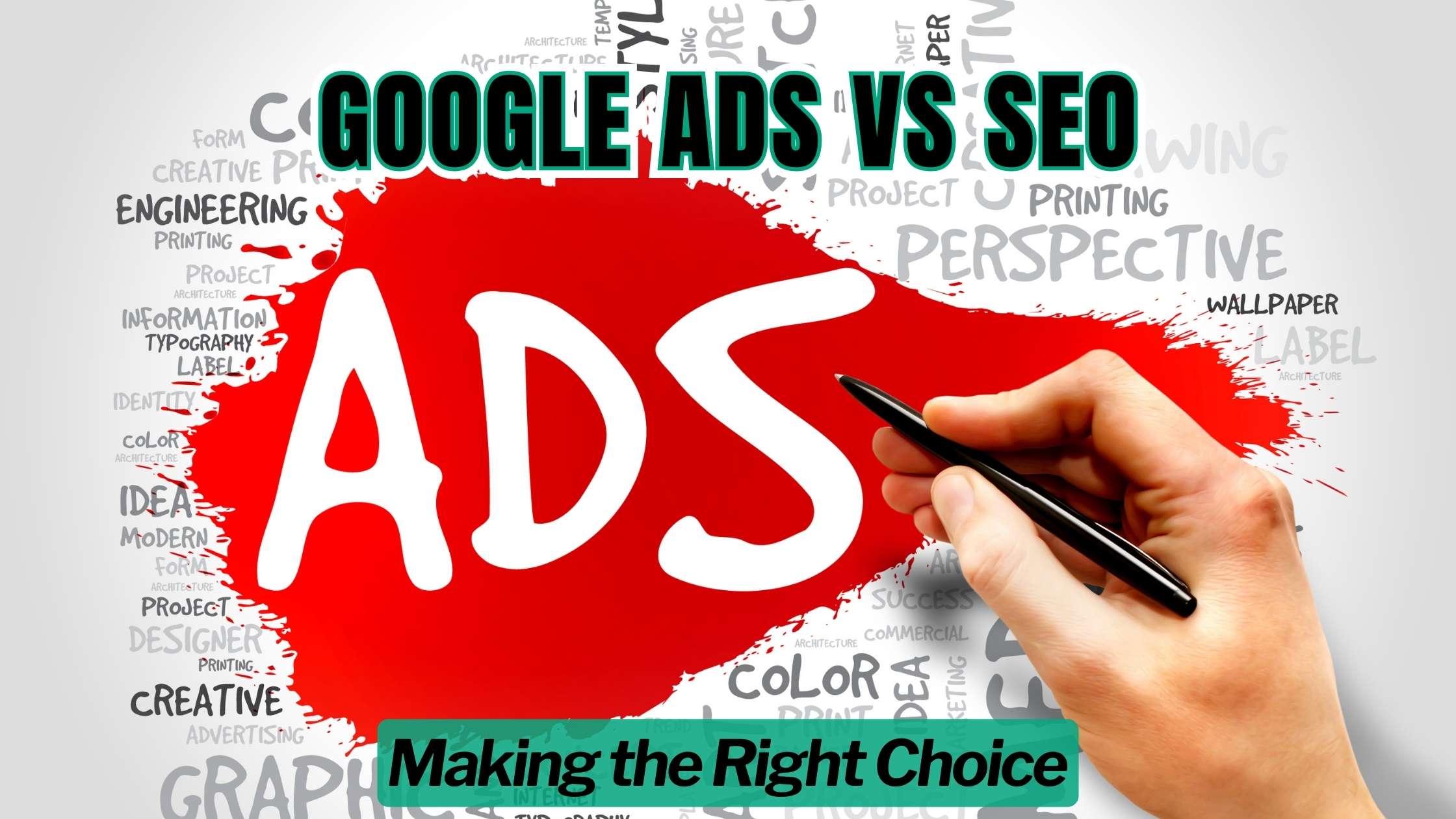Google Ads vs SEO: Making the Right Choice
- Conversational Marketing Software SEO Software Affiliate Marketing Software Marketing Tools


Google Ads vs SEO: Making the Right Choice
In the realm of digital marketing, businesses often face the decision between investing in Google Ads or focusing on Search Engine Optimization (SEO) to improve their online visibility and attract potential customers. Both Google Ads and SEO offer distinct advantages and can play crucial roles in a comprehensive marketing strategy. However, understanding the differences and benefits of each approach is essential for making an informed decision that aligns with your business goals. In this article, we’ll explore the pros and cons of Google Ads and SEO, helping you make the right choice for your marketing endeavors.
Understanding Google Ads and SEO
Google Ads
Google Ads, formerly known as Google AdWords, is Google’s online advertising platform that allows businesses to display ads on Google’s search engine results pages (SERPs) and across its vast network of partner websites. With Google Ads, advertisers bid on keywords relevant to their products or services and pay for clicks on their ads. This pay-per-click (PPC) model enables businesses to target specific keywords, demographics, and geographic locations, making it an effective tool for driving immediate traffic to their websites.
SEO
On the other hand, Search Engine Optimization (SEO) involves optimizing your website’s content, structure, and technical elements to improve its visibility in organic search results. Unlike Google Ads, which requires ongoing payments for ad placement, SEO focuses on achieving higher rankings in search engine results through strategies such as keyword optimization, content creation, link building, and website optimization. While SEO requires time and effort to see results, it can provide long-term benefits in terms of organic traffic and brand credibility.
Which is Better: Google Ads or SEO?
The choice between Google Ads and SEO depends on various factors, including your business objectives, budget, timeline, and target audience. Here are some considerations to help you determine which approach may be more suitable for your needs:
Google Ads Pros and Cons
Pros:
- Immediate Results: With Google Ads, you can start driving traffic to your website almost instantly, making it ideal for businesses looking for quick results.
- Targeted Advertising: Google Ads allows you to target specific keywords, demographics, and geographic locations, ensuring that your ads reach the right audience.
- Flexible Budgeting: Google Ads offers flexibility in budgeting, allowing you to set daily or monthly spending limits and adjust your budget as needed.
Cons:
- Costly: Google Ads can be expensive, especially for competitive keywords, and the cost-per-click (CPC) can quickly add up, particularly for businesses with limited budgets.
- Dependent on Budget: Once you stop paying for ads, your visibility on Google will diminish, leading to a decline in traffic unless supported by other marketing efforts.
SEO Pros and Cons
Pros:
- Long-Term Results: While SEO may take time to see significant results, the benefits can be long-lasting, with organic traffic continuing to flow even after you stop actively optimizing your website.
- Cost-Effective: Unlike Google Ads, which requires ongoing payments for ad placement, organic traffic generated through SEO is free, making it a cost-effective marketing strategy in the long run.
- Builds Credibility: Ranking high in organic search results can enhance your brand’s credibility and trustworthiness in the eyes of potential customers.
Cons:
- Time-Consuming: SEO requires continuous effort and patience to see results, as it involves tasks such as keyword research, content creation, and link building that take time to yield noticeable improvements.
- Algorithm Changes: Search engine algorithms are constantly evolving, making it challenging to maintain high rankings over time. Keeping up with algorithm updates and adjusting your SEO strategy accordingly is essential for long-term success.
Relevant SaaS Products for Marketing
- Google Ads: Google’s online advertising platform that enables businesses to create and manage ads across Google’s network of properties.
- SEMrush: A comprehensive SEO and digital marketing tool that provides keyword research, competitor analysis, and site audit features to improve your website’s search visibility.
- Moz: An all-in-one SEO platform offering tools for keyword research, link building, and site optimization to help businesses improve their search rankings.
- Ahrefs: A powerful SEO toolset that provides features such as keyword research, backlink analysis, and site audit to optimize your website for search engines.
- HubSpot: An inbound marketing and sales platform that offers tools for content creation, email marketing, and lead generation to attract and engage customers.
Conclusion
In the debate between Google Ads and SEO, there is no one-size-fits-all answer. Both approaches have their strengths and weaknesses, and the right choice depends on your unique business goals, budget, and timeline. For businesses seeking immediate results and targeted advertising, Google Ads may be the preferred option. However, for those looking for long-term, sustainable growth and cost-effective marketing strategies, investing in SEO may yield greater benefits in the long run. Ultimately, a well-rounded marketing strategy that incorporates both Google Ads and SEO elements may offer the best chance of success in today’s competitive digital landscape.
Transitioning to Subscribed.FYI, it’s evident how this platform can support businesses in their decision-making process regarding Google Ads and SEO. Subscribed.FYI serves as a valuable resource for freelancers, agencies, and teams seeking to understand, compare, and manage their SaaS stack, including essential marketing tools like SEMrush, Moz, Ahrefs, and HubSpot. By signing up for free on Subscribed.FYI, users can unlock secret deals and savings on a wide range of SaaS tools, enabling them to optimize their marketing efforts and achieve better results in their digital campaigns.
Relevant Product Links:
Explore Subscribed.FYI:








